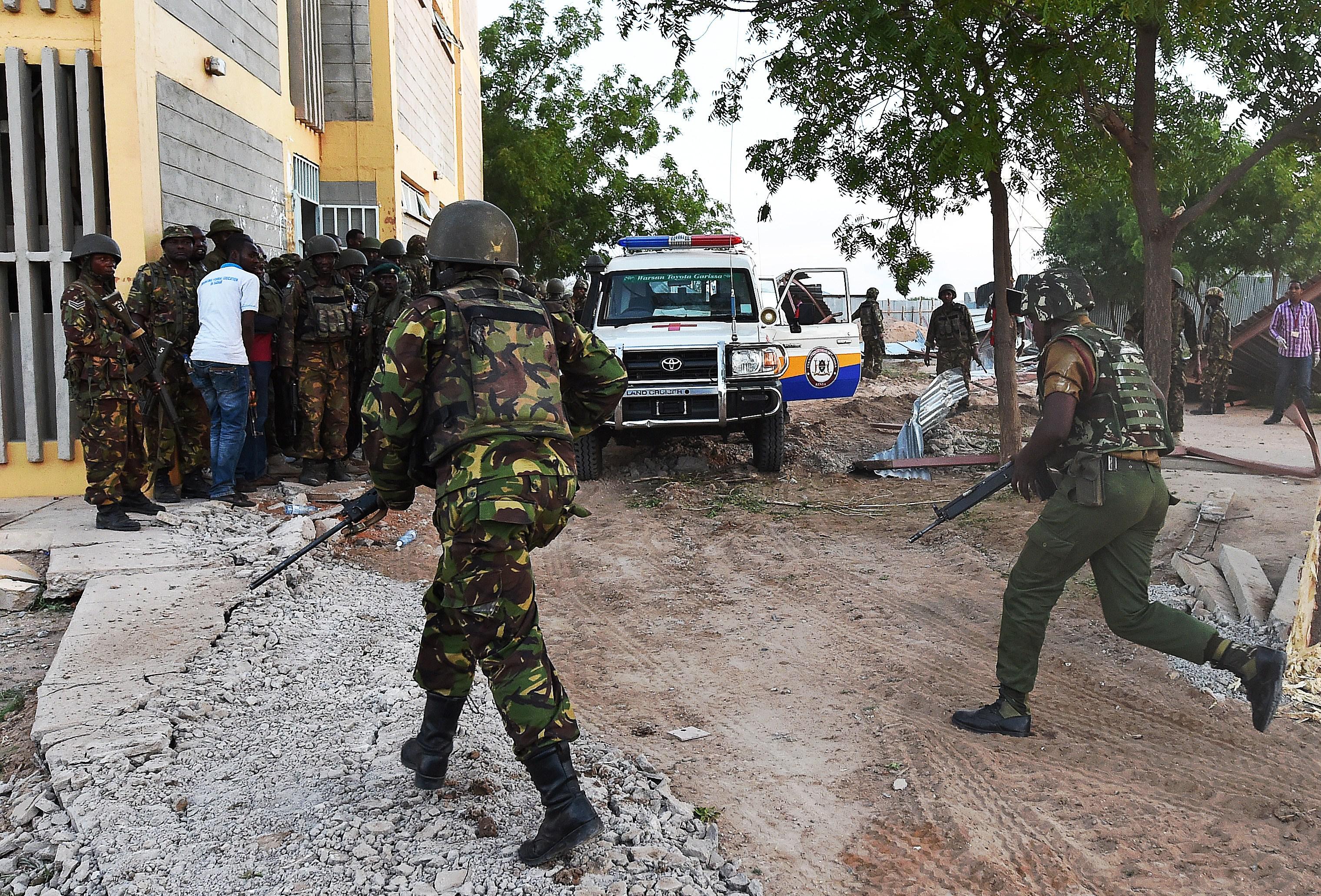The Kenyan military launched airstrikes on Monday against the militant group al-Shabab in Somalia in retaliation for an attack that killed 148 people at Garissa University last week. The military said two camps used to launch attacks into neighboring Kenya had been destroyed, but an eyewitness told the BBC that the airstrikes had just wounded three civilians and killed livestock in an area without a significant Shabab presence.
The government’s latest response isn’t particularly original. Kenya also launched airstrikes after the killing of 36 quarry workers in the northeast in December and after the 2013 Westgate Mall attack, and the United States carries out drone strikes against Shabab regularly, killing senior leader Adnan Garar last month.
Even if it did, in fact, hit some Shabab targets, Kenyans are likely to see the retaliation as an attempt by President Uhuru Kenyatta’s government to demonstrate that it’s doing something, anything, in response to last week’s brutal massacre, in which dozens of defenseless Christian students were gathered together and slaughtered by laughing, taunting gunmen, including, it now turns out, a Kenyan government minister’s son. As the Kenyan political scientist and blogger Ken Opalo writes, Kenyatta risks becoming known as the “Goodluck Jonathan of the East,” referring to the Nigerian president who was booted out of office by voters last month over his failure to tackle either a growing Islamist insurgency or (not unrelated) corruption in the government and military.
The seemingly ineffectual response also highlights a painful contradiction at the heart of the fight against Shabab and similar terrorist groups: The weaker the group becomes within Somalia, the more dangerous it is to other countries.
As I’ve discussed before, and as Christine Mungai writes in a column today for South Africa’s Mail and Guardian, Shabab began to focus more heavily on international attacks like Westgate and Garissa after a series of military setbacks. Shabab once controlled a wide swath of territory in central and southern Somalia, not unlike ISIS or Boko Haram today, and focused most of its energies on establishing and enforcing Islamic law in that country. It was kicked out of the capital, Mogadishu, in 2011 by an intervention of African Union and Kenyan troops and lost its main urban stronghold, Kismayo, in 2012. In the wake of this “defeat,” the International Crisis Group predicted last summer that Shabab’s “armed units will retreat to smaller, remote and rural enclaves, exploiting entrenched and ever-changing clan-based competition; at the same time, other groups of radicalized and well-trained individuals will continue to carry out assassinations and terrorist attacks in urban areas, including increasingly in neighboring countries, especially Kenya.”
No longer having the capacity to govern, Shabab, which has ties to both al-Qaida and Boko Haram, has shifted its focus to threats against the neighboring countries that have launched a military intervention in Somalia, particularly Kenya, where there’s a large Somali population, a sparsely defended border, and long-dormant but exploitable inter-religious divisions. Shabab threatened over the weekend to turn Kenyan cities “red with blood.” It’s also been increasingly focusing its rhetoric on the intervention’s Western backers—see its threat against the Mall of America in February—but its capacity to actually organize attacks outside of East Africa is probably pretty limited.
Kenya and the other governments fighting Shabab have certainly exacerbated some problems. As Opalo notes, there’s evidence to suggest they’ve intentionally kept the government in Mogadishu—a potential new regional rival—weak. And it would certainly be helpful if Kenyan officers weren’t profiting from the same smuggling trade that lines Shabab’s coffers.
But even the most effective and devastating military campaign is going to leave remnants with little to lose from striking back at their foreign enemies. And sadly, Kenya’s civilians will continue to bear the brunt of it.
